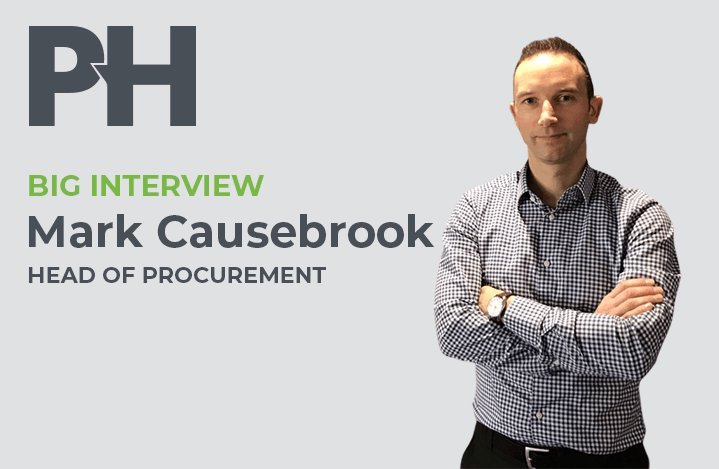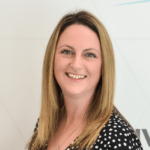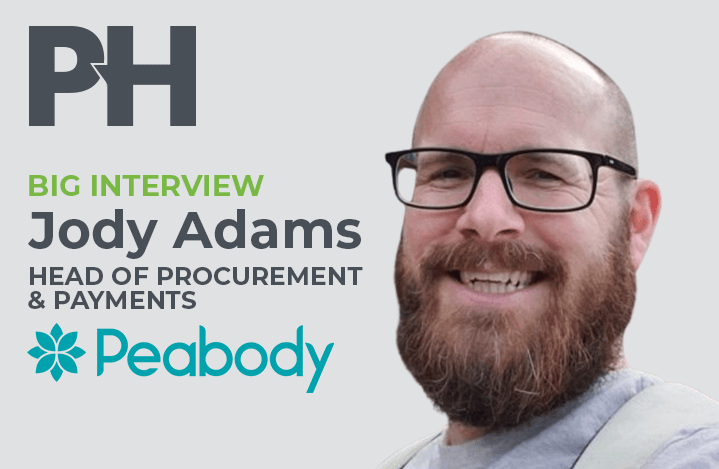He spoke with Procurement Heads‘ Hayley Packham about his procurement career. to hear about his Procurement career.
How did you get into Procurement?
I fell into it, it wasn’t a deliberate choice initially. My course at University involved a 12-month placement and I was offered a position at IBM in Winchester.
I was given the choice of taking a job in sales or Procurement, I didn’t know much about Procurement at the time but I didn’t see myself as a salesman, so it wasn’t a difficult decision in the end.
From the start I enjoyed it, it suited what I wanted in terms of variety and pace so when I graduated I had a clear career path in mind.
Did you know what you wanted to do when you were studying?
Initially, I wanted to be a PE teacher, but I went to University and did a degree that was predominantly business related to a small part sports science related. The sports science part didn’t really test me, where the business element did.
That’s something I’ve looked at throughout my career, the need to be pushed and challenged – which Procurement does, day in, day out.
It’s perfect for me in terms of my personality and I’ve been in Procurement ever since.
What does a typical day look like?
There is no typical day.
I try and plan and structure my week but you need to be flexible, I generally have a lot of meetings so having the ability to switch subjects quickly is important.
Procurement is a mix of working with internal stakeholders and suppliers, so I try to strike that balance.
I try to set blocks of time aside each week to focus on strategic initiatives, functional development and people development. I find if you don’t do that then you tend to focus on what’s immediate and urgent and you can end up treading water over the long-term.
What do you love about the job?
The variety is a major pull.
I love working with people, building relationships and solving problems.
In Procurement, we’re unique from many functions in that we can affect revenue, working capital and profitability all at the same time, which is a really strong motivator.
What about the challenging aspects of the job or Procurement in general?
The role is challenging generally, and it tests you daily, which is why I find it interesting.
Saying that, the current economic situation is generating a lot of uncertainty for companies, which is affecting spending patterns across a range of industries and that is placing considerable pressure on price negotiations and reinforces the need for effective risk management.
What about your biggest achievements in your Procurement career?
My natural response was to go with a significant strategic or financial result, but having reflected upon this I have to say it was accepting an assignment early on in my career in Malaysia.
I spent a year in Penang setting up an international Procurement office. I was quite young at the time and it pushed me outside of my comfort zone.
I met some great people who went out of their way to help me settle both inside and outside of work, which was amazing and I’m still in touch with many of them 10 years later.
It was a massive change in lifestyle, trying to pick up a new language – which didn’t really happen!
During the week it was quite challenging, I was almost on call 24/7, but the weekends were great and I got to see a lot of Asia.
It was a life-changing year.
What inspires you as a Procurement leader?
In terms of leadership in general, seeing teams and individuals develop is important to me and if you can inject some fun into the process along the way it makes the journey even more enjoyable.
I’m a big believer in giving individuals opportunities to develop their skills and experience, whatever level they may be at and at SPI we actively try and encourage that.
We’re very much coaching-based and try and get people on the shop floor to come up with ideas and solve the problems, rather than just telling them what to do.
What skills do you consider essential to be a good Procurement leader?
You need to be resilient, creative and inquisitive.
There’s never a negative question and I think challenging the status quo is important.
As you develop your career you start to help and educate others, but you always need to innovate and learn as there are always new things coming through to think about and consider.
I think you need to be strategic in how you think, have strong commercial acumen and almost be relentless in your pursuit for improvement because nothing stands still.
You need to be adaptable and prepared to adjust your approach to suit different situations.
There are times when you need to be direct and manage conflict, and you need to be comfortable doing that.
Equally, you need a soft and nurturing side and knowing what approach fits different situations is a real skill itself.
I try and be consistent, whether it’s managing up, sideways or down, and treat people the same.
What’s the biggest lesson you’ve learned in Procurement?
I think for me two things stand out.
Firstly, focus on data-driven decisions. If you don’t have data, you’re basing decisions on opinion or perception, which is not always accurate.
Secondly, I think it’s really important to build effective supplier relationships.
If you pick the right partners and develop those relationships the right way it generally leads to value creation on both sides. I think you need to communicate with your suppliers and tell them what you need from them and enable them to succeed.
If you don’t enable them to succeed, how will you?
It shouldn’t be them and us.
By doing that I think you get a different engagement from suppliers.
It’s something we’ve been doing since I joined the company 18 months ago and on the back of that, we’ve made some huge strides forward with our financial results.
How has COVID-19 impacted your 2020/2021 business plans?
Although everyone is keen to build a recovery plan I think it is too early to predict the full global economic impact of COVID-19 and therefore how it could affect our plans for the next 12-18 months. This is clearly something we will be looking at in the coming weeks and months, but the focus currently remains more short term and keeping the business running.
Has your immediate sourcing strategy been impacted, and if so how is your Procurement team adapting?
During the very early stages of the crisis, when China was impacted, we made some tactical decisions to switch to local suppliers where we identified specific supply chain risk. We have also taken a more pragmatic approach to our decision making as we try to secure longer-term supply.
Clearly, there is a balance to strike in terms of cash flow, but we are currently in a reasonable position in terms of order intake. Despite a healthy order book, we are lacking that longer-term visibility that ordinarily would drive many of our MRP decisions so we’re having to rely a bit more on experience and judgement, but we’re all comfortable operating in this way as we often see large swings in demand in our core markets.
What challenges have you faced over recent weeks/months, and how have you and your team worked to overcome these?
Supply chain disruption has been the obvious one and things are very fluid of course. I took the decision quite early on to de-prioritise some of the commercial activities so collectively as a team we could focus more on expediting. The priority at the moment is to try and keep our production lines running for as long as possible. We launched a new SRM programme in July last year which was designed to develop our key partnerships, and this has proven invaluable as we’ve really had to exercise those relationships in the past few weeks. I’ve no doubt that the high levels of cooperation and collaboration that we’ve experienced will continue.
On a working level, we’ve had to adapt to social distancing and we’re all now working from home where we can. Like everyone else, we’re embracing technology much more in our communication and have changed the structure and frequency of our meetings to good effect. Everyone has adapted fantastically well, and we’ve really pulled together as a team during an extremely turbulent time.
Periods of crisis can bring out the best in people and I’ve certainly seen that at SPI.
How do you encourage the business to do what’s needed from a data input and processing point of view to then facilitate those decisions?
The good thing is, SPI does have reasonable data quality.
I’ve been at businesses where that’s not the case and it’s been very hard to make any decisions and you tend to go with your gut feeling.
I think the processes here are pretty rigorous in terms of data and it’s clear that everyone values those processes.
Tell us about yourself
I like to travel.
With this job that’s good as I do travel quite frequently.
I’ve seen some amazing places, which I’ve gone back to visit socially.
Japan is one of my favourite places to visit, it’s unique in its culture.
I have a lot of time for Asia and that part of the world and I like to go back to Malaysia when I can.
I try and keep fit.
I’m an active runner, although perhaps not as active as I used to be!
I also coach my son’s football team and help train his athletics team too.
It’s great and really rewarding.
Outside of that, spending time with family and friends, watching sport – especially football.
What about work/life balance, how do you achieve it?
It’s really important for me, especially since my children came along.
It is difficult as this role is demanding.
I tend to be quite strict at leaving the office at a certain time. If I need to catch-up I tend to work in the evenings when it doesn’t affect them.
I’m not a big fan of people sitting in the office for 10/11 hours a day, I don’t think that’s healthy.
It’s about getting the balance right and being flexible.






